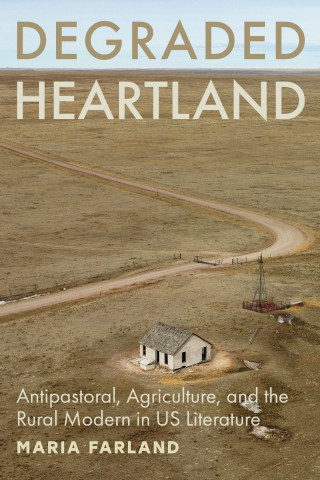
Reviews
Brooker's familiarity with the detailed chronology of Eliot's intellectual development makes her an exceptionally helpful and authoritative guide... this is a lucid, intricate but informative book, and the more you already know about Eliot, the more you will learn from it.
Brooker integrates complex philosophical and theological analyses into a deeply sympathetic, emotionally intelligent study. She excels in guiding us along Eliot's intellectual and creative trajectory, using dialectics to draw a portrait of the conflicted mind of a poet who 'abandons nothing en route'... T. S. Eliot's Dialectical Imagination will no doubt become a standard point of reference in the Eliotic critical canon.
Brooker's work makes skillful use of hitherto unpublished materials.
Jewel Spears Brooker has written a book fully deserving of those accolades on its dust jacket. Its originality, intellectual heft, and clear, graceful style make it appealing to Eliot's general readership and essential for Eliot scholars. "We are in the dawn of a renaissance in Eliot studies," she writes in her Introduction. T. S. Eliot's Dialectical Imagination is a distinguished contribution to that renaissance, taking it beyond its dawn to full sunrise.
In eleven compact and cogent chapters, Jewel Spears Brooker provides a persuasive account of T. S. Eliot's development as man, thinker, and poet. Brooker's book... is likely to be permanently useful.
T. S. Eliot's Dialectical Imagination is an important contribution to Eliot criticism that will undoubtedly become essential reading for scholars of modernism in general and of T. S. Eliot in particular. Its straightforward and lucid language, accessible structure, and expert use of recent scholarship will appeal to a general Eliot readership as well. Like Brooker's other books and essays, T. S. Eliot's Dialectical Imagination is a major achievement.
Brooker's latest monograph, T. S. Eliot's Dialectical Imagination, is a hallmark of scholarly brilliance and literary taste.
T.S. Eliot's Dialectical Imagination provides a fresh and systematic Eliot, reassesses some fundamental issues in Eliot studies, and more importantly, opens up new areas of interpretation regarding Eliot's concern with wholeness, his attitudes toward science and scientific methods, and his ventures into mysticism and epistemology.
Brooker is among the most accomplished of Eliot scholars; her list of publications, honors, and accomplishments is staggering. This latest book is an impressively comprehensive, exhaustively researched, and refreshingly new examination of nearly Eliot's entire corpus. Opening unexpected pathways into texts that have been obscured by old, entrenched interpretations, Brooker’s analysis proves lucid, sophisticated, and insightful—a remarkably consistent and coherent book that promises to become, like her others, a permanent part of the critical canon.
Jewel Spears Brooker excels on Eliot’s religious and moral intelligence. Here is a thinker imbued above all with Dante and the Bible. As an editor of Eliot’s multi-volume Complete Prose, Brooker is ahead in her astute use of the poet’s newly published and soon to be published words.
Jewel Spears Brooker presents with compelling clarity the primary structure of Eliot’s thought through the dialectical process in which he attempts to reconcile and transcend a succession of disjunctive contraries through his philosophical and religious studies. Drawing on years of studying Eliot’s work, and on previously inaccessible materials in new editions of his poems, prose, and letters, this book is a tour de force for the new era of Eliot scholarship. No few words known to me can pay justice to the major achievement embodied in this book.
This is a first-rate study. Gathering up a wealth of mature learning, analysis and reflection, Brooker gives us a supremely succinct, accessible work relating the poet-critic’s earliest philosophical readings and critiques to the full span of his poetry. Fresh knowledge and insights abound, culminating in brilliant readings of Four Quartets.
Written with welcoming clarity and a purposeful sense of focus, this book delineates more clearly than any other how Eliot’s graduate-level study of Bradley, Bergson, and Frazer shaped his poetry and criticism throughout his life. Brooker knows Eliot’s work thoroughly and her book represents the distillation of a lifetime’s expertise.
This book by one of Eliot’s leading scholars will be enthusiastically welcomed by different audiences. It will serve students as an authoritative, splendidly lucid guide to Eliot’s major poems. At the same time, it will renew scholars’ engagement with the poems’ philosophical underpinnings and movement. Erudite, analytically acute, exceptionally cogent.
Book Details
Acknowledgments
Abbreviations
Introduction: Disjunction and Dialectic in T. S. Eliot
1. The Debate between Body and Soul in Eliot's Early Poetry
2. Eliot's First Conversion: "Rhapsody on a Windy
Acknowledgments
Abbreviations
Introduction: Disjunction and Dialectic in T. S. Eliot
1. The Debate between Body and Soul in Eliot's Early Poetry
2. Eliot's First Conversion: "Rhapsody on a Windy Night" and the 1913 Critique of Bergson
3. Eliot's Debt to F. H. Bradley: Reality and Appearance in 1914
4. The Poet and the Cave-Man: Making History in "Sweeney among the Nightingales" and The
Waste Land
5. Individual Works and Organic Wholes: The Idealist Foundation of Eliot's Criticism
6. Poetry and Despair: The Hollow Men and the End of Philosophy
7. Love and Ecstasy in Donne, Dante, and Andrewes
8. Eliot's Second Conversion: Dogma without Dogmatism
9. An Exilic Triptych: The Waste Land, Ash-Wednesday, "Marina"
10. "Into our first world": Return and Recognition in Burnt Norton and Little Gidding
11. War and the Problem of Evil in the Wartime Quartets: Reason, Love, Poetry
Notes
Bibliography
Index






